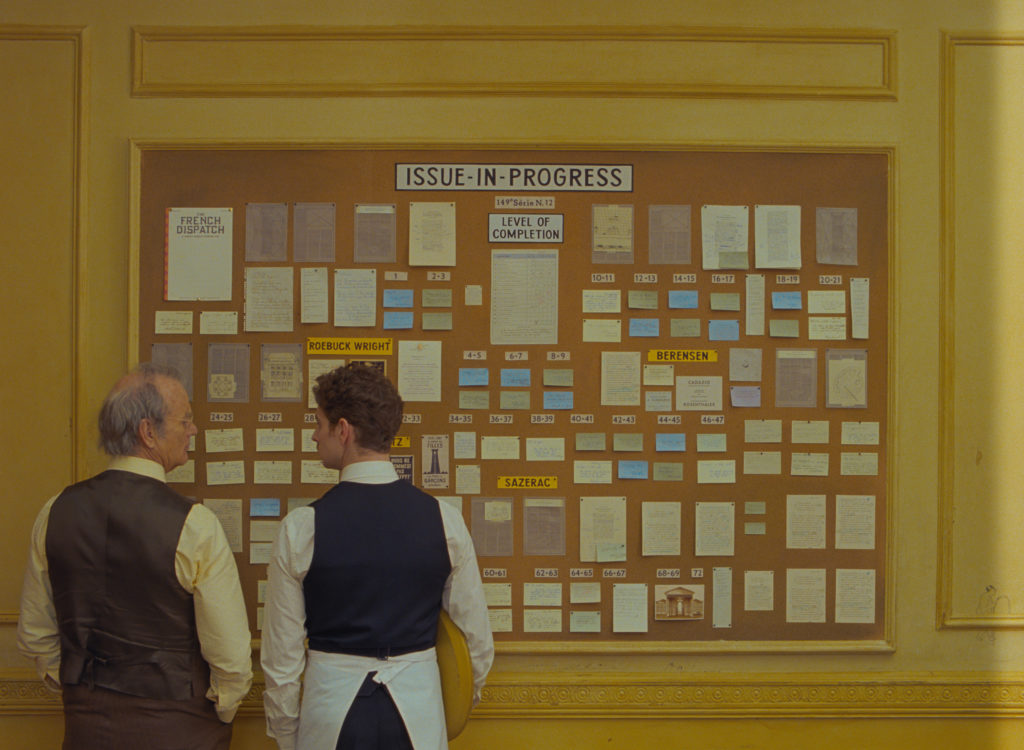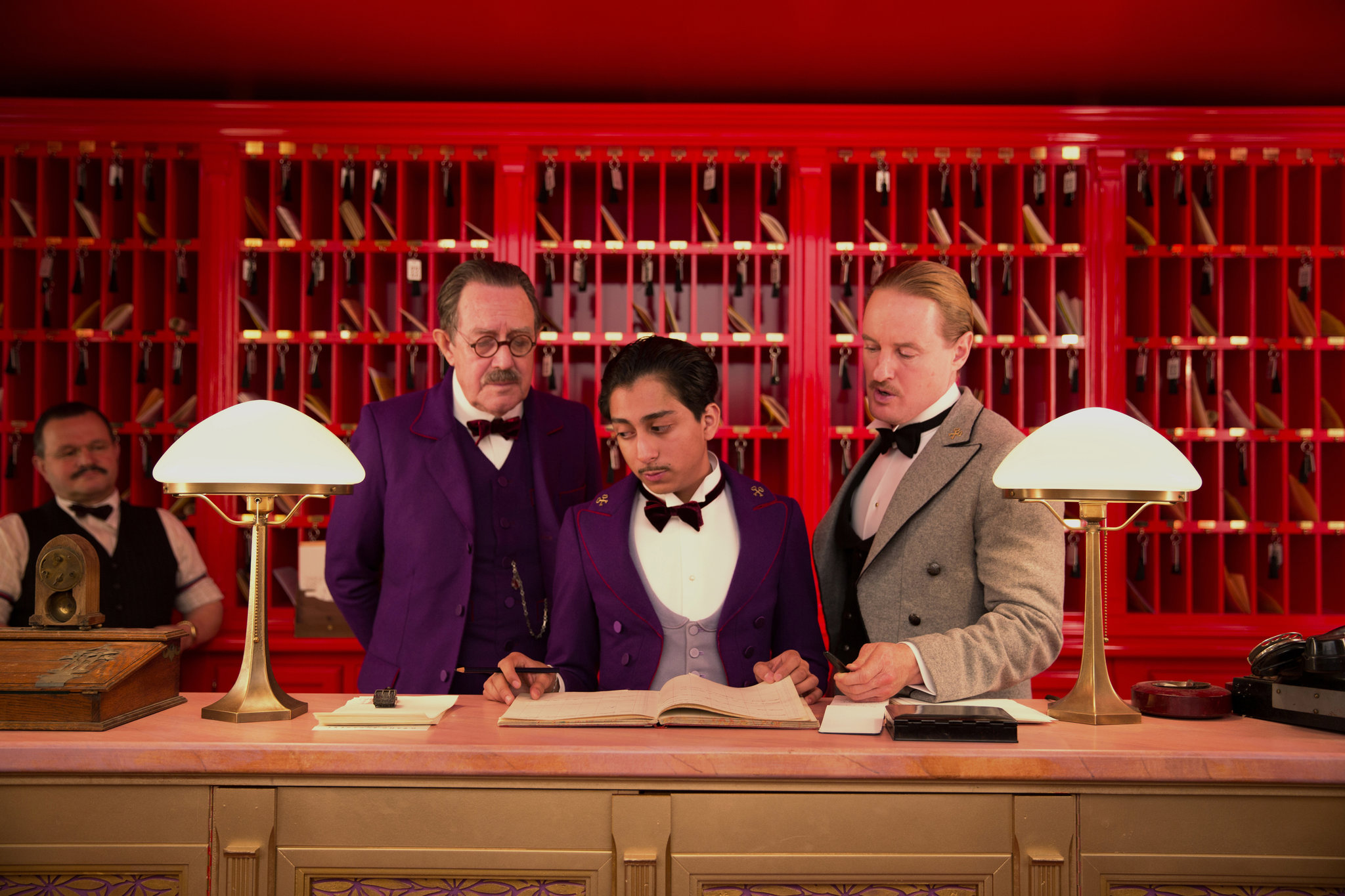
If you had asked me, up until recently, if I was a fan of Wes Anderson– whose filmography will be screening its entirety this week at the Brattle– I likely would have shrugged indifferently. He’s alright, I would have told you, don’t get me wrong– it’s hard not to at least respect a filmmaker whose work is so distinctive in both aesthetic and sensibility– but I likely would have demurred that his films simply weren’t “for me.” I’d have said they were too precious, or too emo, or too twee– probably the most common charge leveled at the director, and the one most difficult to dispute. I didn’t dislike the guy, but I never would have self-identified as a “Wes Anderson fan.”
But if you asked me about my feelings toward individual Anderson films, my tune might have subtly changed. Rushmore and The Royal Tenenbaums are classics, of course, singularly human works which deserved their more or less instant canonization. And The Life Aquatic with Steve Zissou will always hold a special place in my heart, having been released midway through my time in film school and immediately becoming a touchstone among my peers. Fantastic Mr. Fox is simply a delight, and I’m positive it would have been my favorite film in the world if it had been available when I was a child. The Grand Budapest Hotel is a gorgeous film with career-best work from Ralph Fiennes and a star-making turn for Saorise Ronan, and Moonrise Kingdom contains, for my money, at least one of the single funniest lines of dialogue of the 21st century (“Was he a good dog?” “Who can say?”). Eventually, I would have had to concede that I had enjoyed every single Wes Anderson film I’d seen, and I’d seen nearly everything he’d ever made. By the numbers, that would seem to make me a “fan.”
So why the hesitation? Perhaps it’s because, as anyone even vaguely in touch with cinema culture will tell you, “Wes Anderson Fan” is practically a subculture in its own right. You probably know who I’m talking about: young (and at this point not-so-young) people, well-groomed and impeccably garbed in thrift-shop chic, wearing their emotions on their sleeves like so much corduroy and twill. This breed was inescapable in the mid 2000s (which, again, was the time at which I attended film school, so you can only imagine), and has only multiplied in the hashtag-aesthetic world of social media. Just this year, the awkwardly named “#WesAndersonTrend” trend swept Tiktok, with users emulating the filmmaker’s trademark symmetrical compositions and muted pastel color palette. More tiringly, an endless parade of Anderson-inspired AI “imaginings” of Star Wars, Harry Potter, and other franchises have gone viral (I’m not going to dignify any of these with a link, but they’re pretty much what you think they are). By this point, one could get sick of Wes Anderson without even being aware that he’s a filmmaker.

I finally managed to drop my defenses and give myself over to Anderson’s charms while watching his most recent film, The French Dispatch (or, to use its full title, The French Dispatch of the Liberty, Kansas Evening Sun). Perhaps, as a writer and editor myself, its cast of crusading journalists and their weary but ever-patient EIC resonated with me in a way that Anderson’s previous protagonists had not; perhaps it’s that Anderson’s trademark farce-to-pathos ratio here hit its most pleasing balance; or perhaps it’s simply the fact I had squeezed a trip to Paris into the early months of 2020, turning the city into my own personal memory palace during the darkest days of the pandemic. But whatever the reason, The French Dispatch simply worked for me, and I had a big, occasionally wistful grin on my face from beginning to end. I ended up placing The French Dispatch at #3 on my 2021 year-end list, but in retrospect that feels perhaps too low; the more time goes by, the higher I sense it creeping on my (nonexistent) all-time list.
Then a funny thing happened: as The French Dispatch made its way through my bloodstream, I found my reservations toward the rest of Anderson’s work slipping away. I began realizing that so many of the things that kept me from fully embracing his work– the ostentatious framing devices, the swings from comedy to tragedy, the unrelenting fussiness of the production design– were features, not bugs. I started thinking more and more fondly of films which I had hedged over at the time of their release. As a young film punk, I had been intent on dismissing anything overly popular within my sphere. Now that I’m older– a bit softer, debatably wiser– and with less to prove, I’ve allowed myself to admit that Wes Anderson really is something special.
If there was any lingering doubt, consider this: in a world where mid-budget cinema is vanishing faster than the middle class, and seemingly every promising young auteur has been bought and mulched by the studio machine, Anderson has yet to waver from his unique vision. The reason all those awful AI videos keep getting traction is that it is quite impossible to imagine Anderson signing on to direct a Marvel or a Star War, and I can’t think of many other contemporary directors for whom that can be said (hell, even David Lynch made Dune). And the reason all those hipsters and influencers keep copping his style is because his wry humor and manicured style speak to them with an honesty and directness which is getting harder and harder to find. When his films screen this week at the Brattle, don’t be surprised to see a house packed with fans. I’ll be one of them.
The Compleat Wes Anderson runs from 5/12 to 5/18 @ Brattle Theatre – click here for schedule and ticket info

